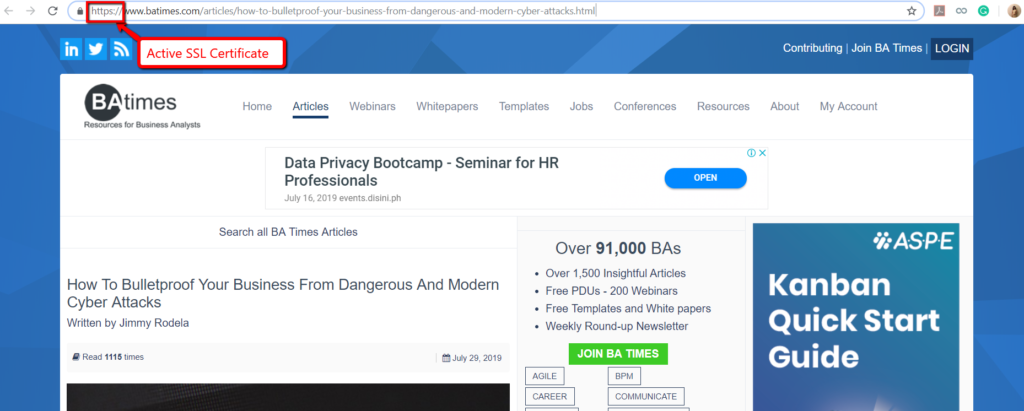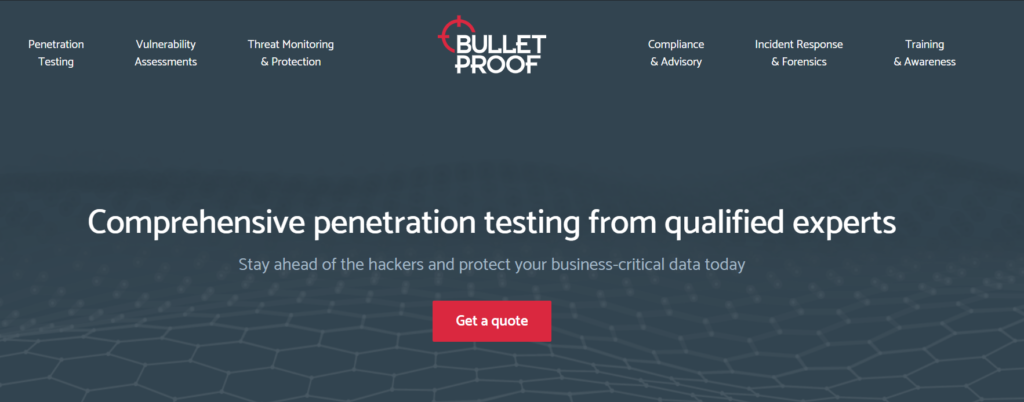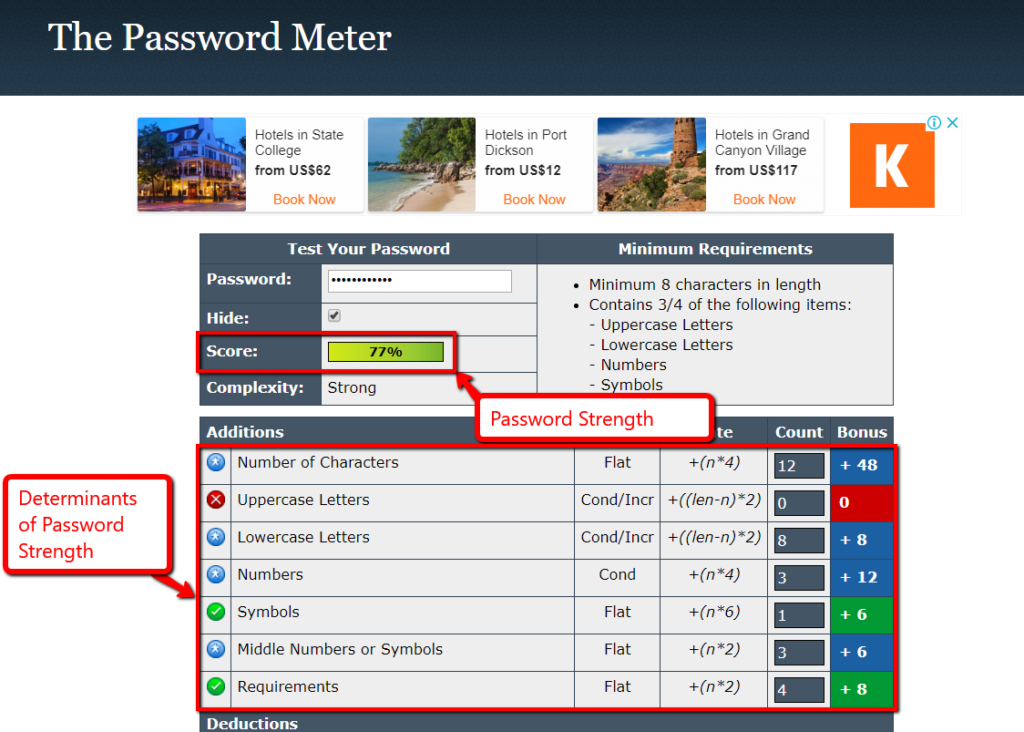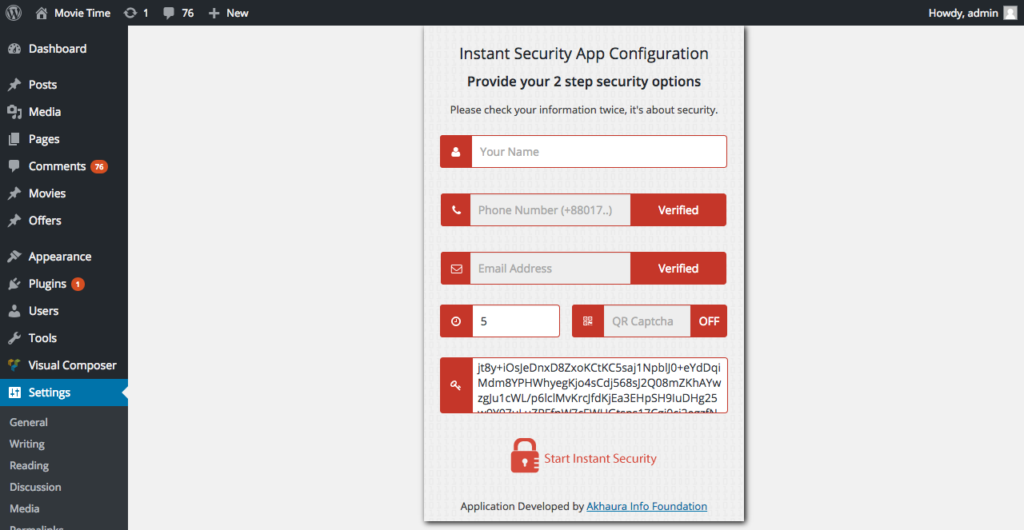Once you start putting valuable pieces of information on the web, you have to start thinking about keeping it safe and away from the prying hands of hackers.
For digital marketers, putting valuable information on the internet is inevitable, given the nature of the industry – online-based.
This is where cybersecurity comes in.
To remain safe and protected on the internet, cybersecurity is crucial for digital marketing businesses.
This article will cover what you need to know about cybersecurity, the various threats, and how you can counter those.
Let’s get started.
What You Need to Know
Naturally, the digital marketing industry reaches a broad audience, which makes it vulnerable to different types of security breaches.
What makes this even more alarming is that cybercriminals have become more creative in their schemes that sometimes, the security breaches almost become invisible.
Over the years, security breaches have been identified and analyzed to help people become more aware of cybersecurity issues.
Here are the two most common forms of cybersecurity breaches:
All Forms of Malware
As mentioned previously, security breaches can sometimes be invisible.
One very deceptive form of malware can be found in ads that usually appear on trusted websites. Because the sites are trusted, people tend to lower their guard when clicking the ad — thinking that it’s safe.
If you accidentally click the ad, you might download the malware on your computer. With that, you risk exposing valuable information in an instant.
Another form of malware is called Spyware.
Once installed, it can track information like passwords and keystrokes that hackers can use.
A notorious form of malware is called Ransomware, which has cost digital marketers a huge amount of money. Hackers steal information from you and demand a ransom.
If you want to take back the information you lost, you need to pay these cyber criminals the ransom money. According to Accenture, malware attacks usually cost a company about $2.4 million.
At some point, before any type of malware can cause harm to your online business, it needs to be installed. As a precaution, always double-check what you install and don’t trust everything you see on the internet.
Phishing Emails
For the most part, cybercriminals have gotten more creative because the internet users are now more critical about the things they click online.
At this age, it’s difficult for cybercriminals to trick people into clicking links in suspicious emails or going to suspicious websites. Users have multiple options from unending emails to integrating a special security system.

They eventually resort to phishing — pretending to be someone they are not.
Oftentimes, phishing emails look legitimate until a few details tip them off. The tone of the email and the links attached to it are the signs you check to see if it’s a legitimate email.
These links might contain malware that could be downloaded into your computer automatically when clicked, or the cybercriminal might straight-up deceive you into sharing your login details with them.
For example, cybercriminals can send you an email posing as a bank you’re transacting with (like Bank of America). They can include BoA’s logo in their email, they can add a fake name, fake job title, and even a fake phone number in the signature just to make it look like they’re really from BoA.
On the same email, they will ask you for your username and password to access your account online so they can set up their maintenance. (The maintenance bit is a sham, of course.)
If you aren’t careful, you might actually share your logins since you thought the email you received was from someone from BoA.
When that happens, you’d have fallen prey to a phishing scam.
How to Secure Online Business
According to the Ninth Annual Cost of Cybercrime Study, online security breaches have increased by 11% since 2018.
More than just an increasing number of attacks, the costs of repairing the damages made by these attacks are also skyrocketing.
Damages like these should be enough to push digital marketers to take extra steps to protect their business. Investing in cybersecurity should be made as early as possible.
On the positive side, digital marketers are provided with several measures to secure their online business.
While working with the right website designer contributes to improving your cybersecurity, you should also take these measures to ensure thorough protecting.
Here’s a list of them:
1. Use SSL Certificates to Protect Your Website
Digital marketers can start protecting themselves from security breaches through SSL certificates.
Through SSL certificates, readable information gets converted into codes which have specific encryption keys. Only digital marketers have access to encryption keys that protect their information from others.
An additional benefit of SSL certificates is cyber security SEO. Your website can get a higher rank on Google searches if you use SSL certificates.

To confirm an active SSL certificate, check if the website shows “HTTPS” as shown in the picture.
2. Perform Penetration Tests
One way to ensure that your online business is safe from vulnerabilities is to perform ethical hacking. This is commonly called as penetration testing or pen-testing.
Ethical hacking allows you to see what parts of your network or website can be breached by cybercriminals.
There are tons of companies that provide penetration tests and one of them is Bulletproof.
Bulletproof offers penetration testing wherein security experts will perform the tests and comprehensive reports will be provided to you for your benefit at a competitive price.

You can get a quote today for web applications, networks and infrastructures, mobile applications, social engineering prevention, and red team security.
3. Avoid Easy Passwords
A common mistake that most people on the internet commit is making a password that’s too easy to guess.
Yes, we’re also talking about digital marketers. There might be times that creating an easy-to-remember password will be tempting but by all means – resist it.
To make your passwords stronger, avoid using personal information and diversify using upper- and lowercase letters, numbers, and characters.
You can also check the strength of your password through password meters available online such as Passwordmeter.com.

4. Conduct Cybersecurity Training for Your Employees
Your employees are also vulnerable to security breaches. As mentioned before, they can fall into the phishing traps or click on malware ads.
According to BAtimes, educating your employees on potential cyber threats is one of the ways to prevent any breach from happening.
Employee training can give awareness on the different methods cybercriminals use and provide methods to effectively avoid falling into these traps.
These training sessions should emphasize phishing emails and malware because these common forms need human intervention.
5. Use 2-Step Verification Processes
This kind of security measure goes beyond the log-in information. Even if someone has both your email and password, they will still need to further verify their entry.
Through this verification process, unique codes will be sent to personal accounts like email or through SMS.
Codegrape offers a WordPress plugin that allows a 2-step verification process to further protect users.

For WordPress users who commonly face security threats, this is a good investment for your business.
Conclusion
Everybody on the internet is vulnerable to cybersecurity attacks – especially digital marketers.
The best way to avoid spending money on reversing the damages is to take the necessary steps to protect the business.